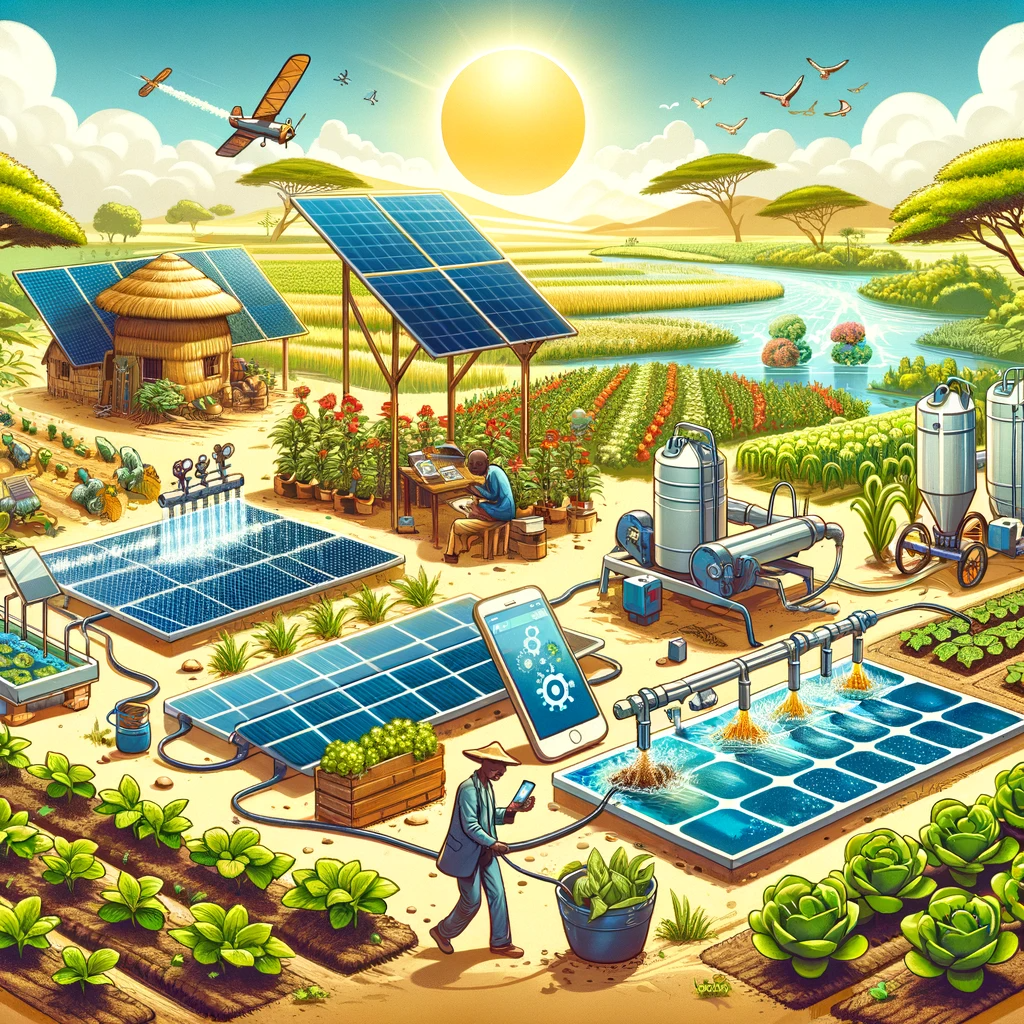Dar es Salaam, Tanzania (July 12, 2024) – Solar energy holds the potential to revolutionize Tanzania’s agricultural sector by providing clean, sustainable power for irrigation, crop preservation, and processing. This innovation could significantly reduce operational costs for farmers and bolster food security nationwide.
Deodatus Balile, Chairman of the Tanzania Editors Forum (TEF), emphasized this message during the unveiling of a report on solar energy journalism in East African agriculture by the African Center for Media Excellence (ACME). Balile highlighted that solar energy’s applications extend beyond irrigation to include drying and preserving crops like cassava, potatoes, and grapes, thus reducing post-harvest losses and extending shelf life.
“Solar energy isn’t just about irrigation,” Balile explained. “It can also be used to dry and preserve crops like cassava, potatoes, and grapes, extending their shelf life and reducing post-harvest losses.”
The report revealed that while 47% of published news focused on irrigation, there was a notable lack of investigative reporting on the broader applications of solar energy in agriculture. Balile called for increased media coverage of this critical issue to raise awareness and drive adoption.
Dr. Darius Mukiza, a lecturer at the University of Dar es Salaam, echoed this sentiment, stressing the multiple uses of solar energy in agriculture. “With proper investment in solar technology,” he stated, “Tanzania’s food production could substantially increase.”
The ACME report analyzed news coverage on solar energy in East Africa and found that many stories lacked depth and failed to prioritize women’s voices. Brian Ssenabulya, ACME’s Program Officer, announced plans for training initiatives to equip journalists with the knowledge and skills to report on solar energy in agriculture effectively.
The government has also been urged to participate by implementing policies, regulations, and tax incentives to make solar technology more accessible and affordable for farmers. This could include offering subsidies or tax breaks for solar equipment and supporting local manufacturing of solar technologies.
Key Takeaways:
- Untapped Potential: Solar energy represents an underutilized resource that could transform Tanzania’s agricultural sector.
- Diverse Applications: Beyond irrigation, solar energy can be used for crop preservation, processing, and other agricultural activities.
- Call to Action: The government, media, and agricultural sector must collaborate to raise awareness, provide training, and invest in solar energy solutions.
- Women’s Empowerment: Prioritizing women’s voices and participation in the solar energy transition is crucial.
By harnessing the power of the sun, Tanzania can cultivate a more sustainable, resilient, and productive agricultural future. Balile’s call for increased media coverage and governmental support aims to accelerate this transition, ensuring that solar energy becomes a cornerstone of Tanzania’s agricultural development strategy.
